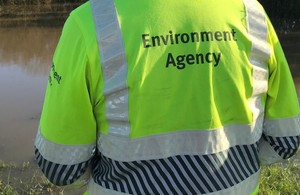Environment Agency informs abstractors on licence changes
The Environment Agency has recently informed abstractors in the Ant Valley about proposed changes to their licences.

The Environment Agency wrote to licence holders to say that, in January 2023, they will start to issue notice of the changes that need implementing to their abstractions.
Following several years of work and thorough investigations the Environment Agency concluded in 2021 to protect the Ant Valley changes needed to be made to abstraction licences.
The Ant Valley, which is home to a number of Sites of Special Scientific Interest, is facing significant water pressures. Evidence shows that current abstraction levels may be causing damage to the environment. To protect the sites there is no alternative to revoking some of the current abstraction licenses and adjusting others to reduce the amount of water that can be taken.
The changes will come into effect on 1 October 2024, which gives abstractors time to prepare and seek alternative water supplies where necessary.
Simon Hawkins, East Anglia Area Director, for The Environment Agency said:
The Environment Agency has a duty to protect nature from harm. We have clear evidence that abstraction is damaging the Ant Valley protected sites.
Since 2018 we have been exploring a range of possible solutions with the abstractors and our other local partners.
We will issue formal notices of the changes to 17 permanent abstraction licences in January 2023. These will come into effect on 1 October 2024.
Once we have served these notices, licence holders have the right to appeal and have their views heard by an Inspector. The final decision being made by the Secretary of State.
The proposed changes to the 17 licences will see up to 1 billion litres of water returned to the environment each year. This combined with other work the Environment Agency are doing in the Ant Valley means overall 3 billion litres of water will be returned. This will benefit a wide range of plants, invertebrates, fish, birds and other animals. These include swallowtail butterflies, Norfolk hawker dragonflies and a number of rare plants such as the Fen Orchid.